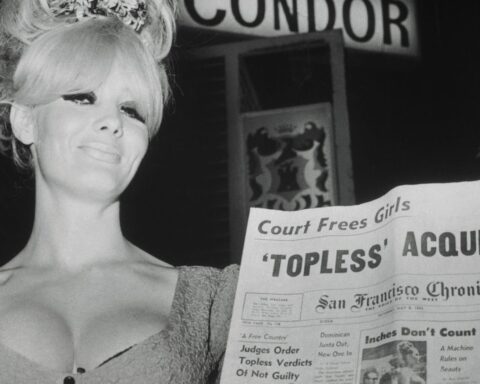The Janes
(USA, 101 min.)
Dir. Tia Lessin, Emma Pildes
Programme: U.S. Documentary Competition (World Premiere
Reproductive rights are among the major themes at Sundance this year. Besides The Janes, there’s the dramatic counterpart, Call Jane, which interprets the efforts of the same underground Chicago collective the facilitated a woman’s right to choose. There’s the U.S. doc comp companion Aftershock about Black women being failed by the medical system. Midwives, meanwhile, offers a look at a grassroots response to midwifery. Even the chaotic horror movie Resurrection fits the timely debate as Rebecca Hall seeks vengeance on the man who may have eaten her baby. When so many films are in dialogue, the programmers shrewdly discern an important trend.
The Janes obviously belongs in conversation with Call Jane. The drama by Phyllis Nagy is, admittedly, not a great film outside an award-calibre performance by Sigourney Weaver. However, The Janes is essential viewing as context for Call Jane and the implications of overturning Roe v. Wade that hang atop these films. One can quickly discern the breadth and depth of research that went into Nagy’s drama. As both films recount how the Jane Collective came to be and operated at a time when women had to resort to illegal abortions to enact their right to choose, both films somewhat struggle to synthesize the large, significant, and continually resonant history they impart. They’re both acts of telling versus showing, although that’s more glaring on The Janes’ talking heads part.
Relives Recent History
This film by Tia Lessin and Emma Pildes is an informative and handsomely assembled work with obvious significance. As Roe v. Wade finds itself under threat again in a polarised America, reproductive rights are as hot a topic now as they were in 1968. The Janes revisits the recent history of the clandestine movement that facilitated abortions when alternatives proved deadly. Lessin and Pildes assemble an impressive number of women who participated in the Jane network. With so many women alive to tell their tales, the proximity of the present-day audience to the story of the past underscores how quickly laws can change.
There are great interviews here as surviving Jane recall their collective awakening. Participants discuss how middle-to-upper class women could afford the surgery. At $1000 each, which amounted to several months’ rent, few women could pay the shady mobster moonlighting as a doctor. The Janes, moreover, consider the call to duty women felt after going under the knife. Like Elizabeth Banks’ Joy in Call Jane, survivors often understood the stakes only after they lived them. The film details how women worked together to pay a “doctor,” ferry women to operations, and care for them post-op. The ins-and-outs are all there, including the perspectives of husbands who worried daily and Irish-Catholic cops who didn’t understand “abortion.”
A Conventional Conversation
Although the doc easily marks itself as the most conventional competition title at Sundance this year, the stories of the Janes are impossible to fault. (A limited amount of archival material, moreover, means that still images and film clips repeat throughout.) The talking heads format lets history be told by those who lived it. Lessin and Pildes also put the women on equal footing and respect the collective nature of the group. There are heartfelt and compelling testimonies here. Close calls, terrifying arrests, and tough, soul-searching conversations about how women won by working together make for worthy viewing. There’s also ample humour as the Janes recall how they evaded the cops. Men’s limited knowledge of women’s physiology, sexuality, and social lives let the Janes work relatively unscathed. Scrumptious pork roasts, meanwhile, had gluttonous cops asking “what’s for lunch?” instead of recognizing abortionists in their midst. The participating cop, a fun and colourful character, adds that the homicide squad wasn’t particularly keen to bust the operation when people were being murdered violently in the streets.
The cop’s opinion reflects the social attitude that gradually let one state after another recognize that the only harm being done was to the women denied the right to choose. As the film culminates with the passing of Roe v. Wade, it makes clear the danger of reversing progress. The Janes nevertheless assembles important voices to put an essential story on the record. Ignore any apparent hastiness in the delivery, for it’s too late to return to the way things were before.
The Janes premiered at the 2022 Sundance Film Festival.
Update: The Janes premieres on Crave on June 8.














